If you find mowing the lawn a chore, buying the right type of mower for you and your lawn could change this, and make that hour out of your day much easier.

When choosing which mower you want to buy for your lawn, you will be faced with the decision of buying a push lawn mower or a self-propelled mower, each kind of mower has there pros and cons depending on your preference and type of lawn.
Push lawn mowers to tend to be the best for small lawns with no hills, whether self-propelled mowers are great for tacking larger lawns with inclines as the motor can support you.
To figure out which mower is right for you, we have put together our best guide that will explain to you how these mowers work for each lawn, what types there are and the advantages/disadvantages to them.
Push mowers are quite self-explanatory and require you to push the mower along for them to work, with no assistance from the mower.
These mowers come in two main types; reel, electric and petrol (motorised), and they are suited to small gardens rather than large gardens.
We will list the two main types below along with there pros and cons so as you can see which push mower might suit you best.
Reel mowers are a type of mower that has not motorised cutting and instead relies on the friction created by the user to turn the horizontal cylinder blades on the mower to cut grass.
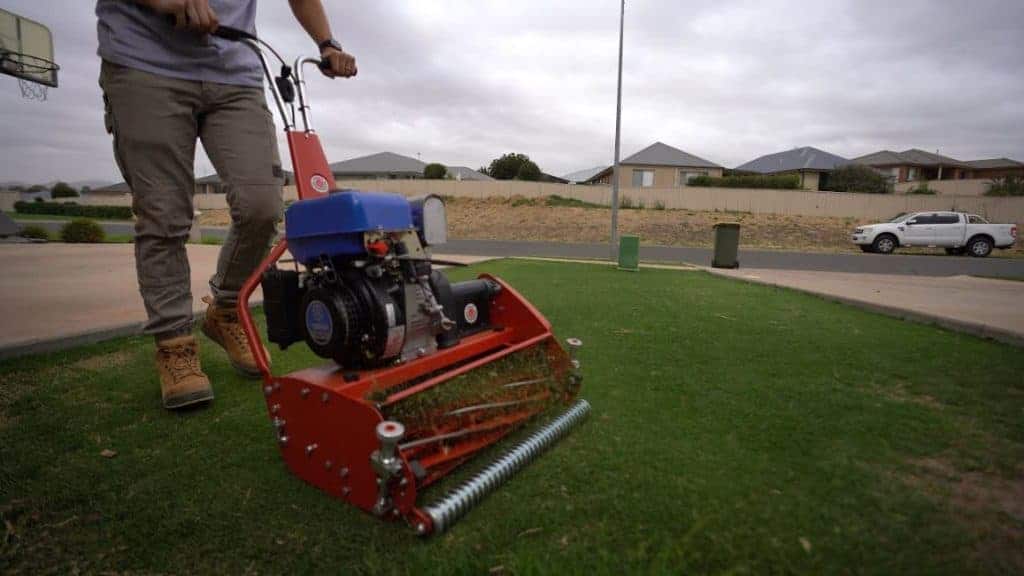
These mowers are very quiet and very affordable, making them perfect for flat and small lawns around your home.
Motorised push mowers are either powered by electric or petrol and use rotary blades to cut grass. The cutting of these motorised mowers is not controlled by the user, and the user simply has to push the mower around to where you need your lawn to be cut.
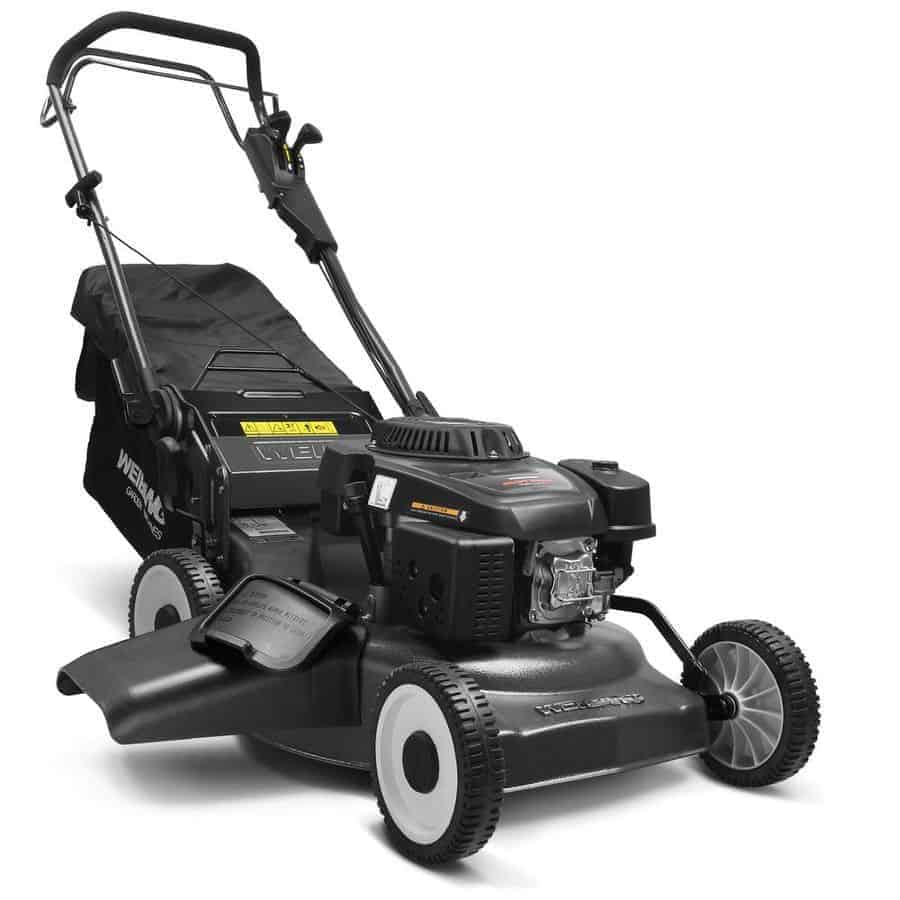
This makes these mowers great for more uneven terrain and thicker grass in comparison to a reel push mower.
Self-propelled mowers on the other hand have a motor that drives there wheels, meaning you don't have to do the pushing as you would with push mowers.
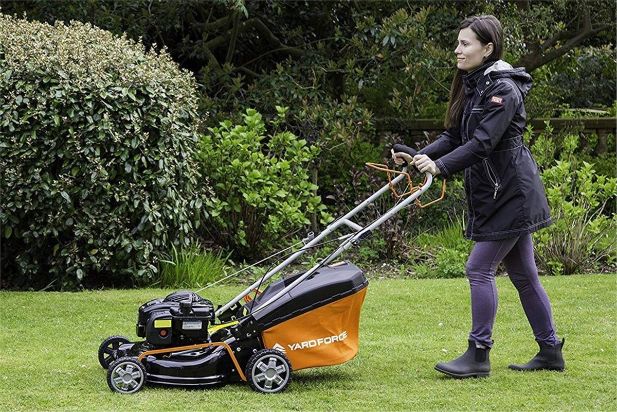
These types of mowers use a front-wheel-drive system or a rear-wheel-drive system and maintain a comfortable speed to mow with as you walk across your lawn.
To work these mowers you have to squeeze a safety bar which starts the wheels and cutting system, they are most suited to larger lawns and inclines due to the motor assistance and can help you speed up your mowing time, with some models going up to 4 miles per hour.
We have listed out the differences and pros/cons of front-wheel drive and rear-wheel driver self-propelled mowers below.
Self-propelled front-wheel drive mowers are very easy to use, affordable and make the best option self-propelled wise for flat terrain.
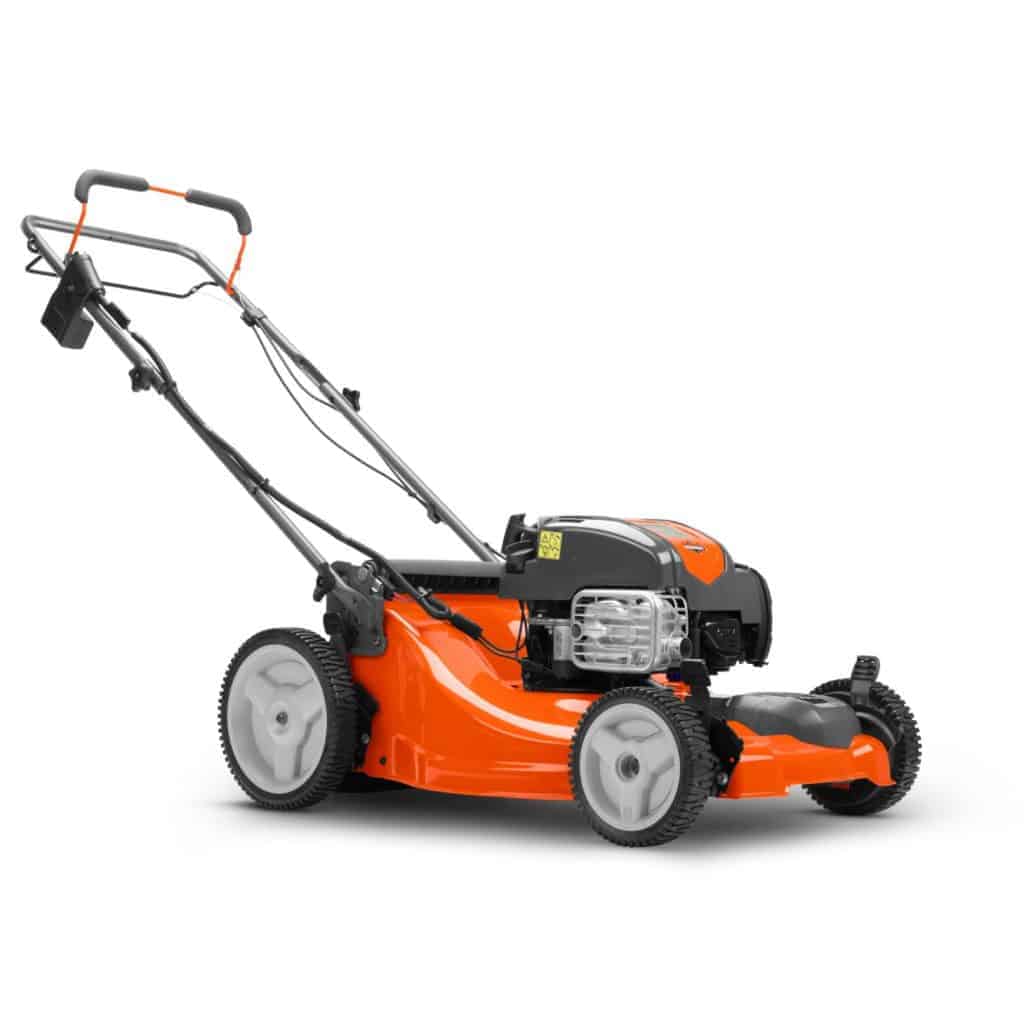
The small amount of mechanics in this model make it less likely to have issues in comparison to a rear-wheel-drive mower and are great for navigation.
Rear-wheel drive self-propelled mowers are the best choice for hilly and large gardens, as the rear wheels on the mower do all the work for you and help you get a heavy lawnmower up a steep hill with no problems.
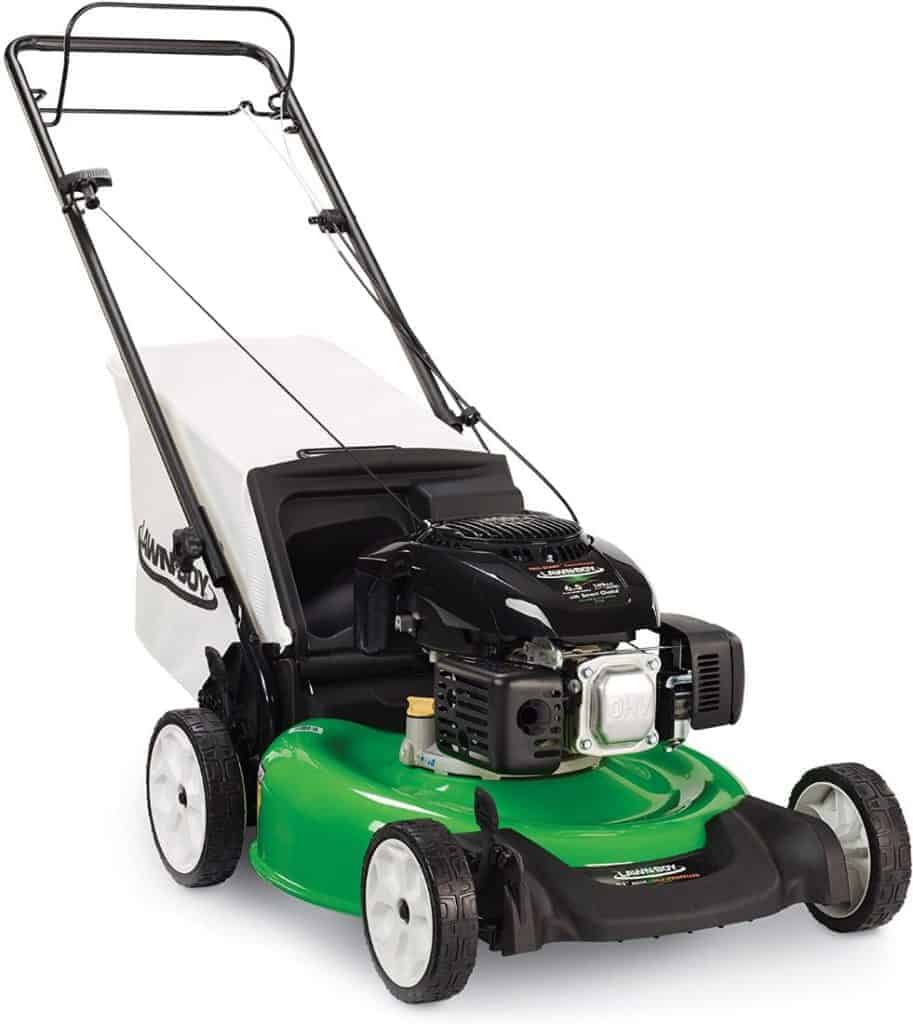
These models are a little more difficult to navigate however and they do need more maintenance as their mechanics are more complicated than front-wheel mowers.
Now we know all the different types of push and self-propelled mowers on the market, we can compare the two types of mowers together and see the pros and cons of each kind of mower system.
Self-propelled mowers make lawn mowing more pleasurable, as they do most of the work for you, they also reduce the total time you spend mowing by keeping a consistent propelled speed and can tackle overgrown, large gardens and inclines very well.
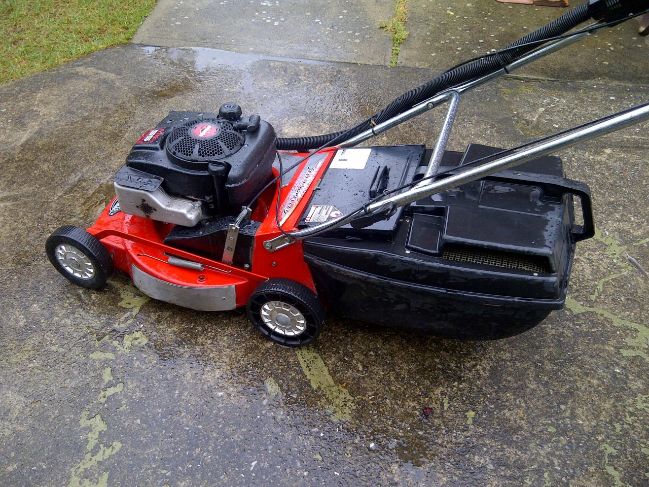
However, these mowers are very expensive, and they are further very heavy, making them hard to store away after use.
Push mowers are very good for small flat gardens and are super easy to navigate with due to there lightweight, making them easier to store too.

These mowers additionally tend to be more budget-friendly and are a great way to keep fit.
The drawbacks of these mowers are the lack of assistance which can be helpful to mow inclines and larger gardens, they also take more time to mow with and aren't as powerful.
After comparing these two types of mowers, you might be wondering, which one is right for me? The most obvious answer would be a self-propelled mower, as this requires less effort.
But it's not always as simple as that, as most of these mowers are very expensive and are not required for small backyard gardens.
Meaning the mower you choose should correspond to the type of lawn you will be mowing.
As we mentioned above, before you decide which type of mower you want to buy for cutting your lawn, you need to make sure it fits the requirements of your lawn.
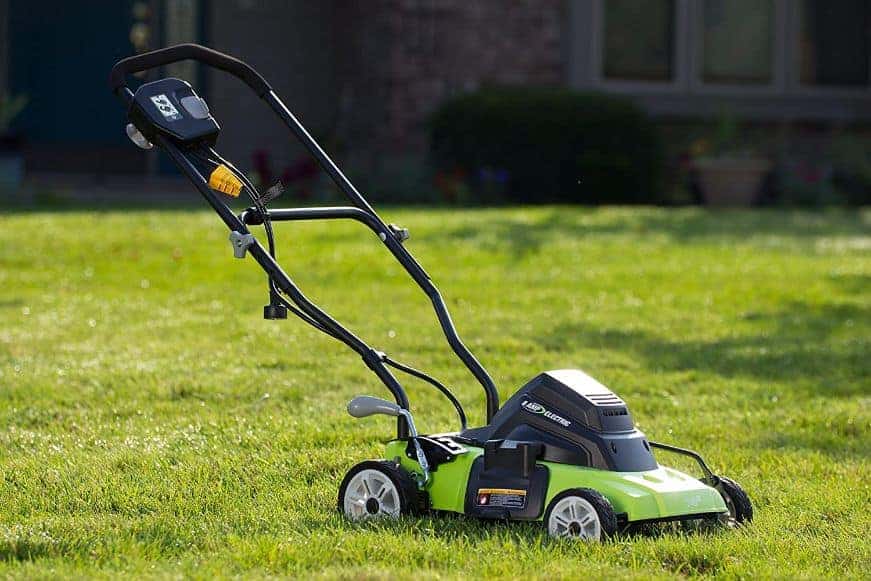
We have listed out some common lawn types below and the recommended mowers for them to help you out.
When should I use a riding mower?
Riding mowers are only necessary if you have a huge lawn to cut which is very uneven, hilly and time-consuming, meaning the only way to tackle it would be with a ride-on mower.
Are petrol-powered push mowers more powerful than electric ones?
Yes, petrol mowers are slightly more powerful than electric ones and may be able to handle thicker and longer grass, however, nowadays the power difference is very minor.
If I have a small flat garden lawn, what type of mower should I use?
For a small garden, you might be able to get away with a push reel mower, however, if you want a little more power, you could go for a motorised push electric mower instead.

To conclude, self-propelled and push mowers each have there pros and cons according to the assistance you need when mowing and the type of lawn you are going to be cutting.
If you have a hilly lawn with an uneven terrain of a large size, go for a self-propelled mower, but for smaller lawns, you might be better off with more affordable motorised push mowers.